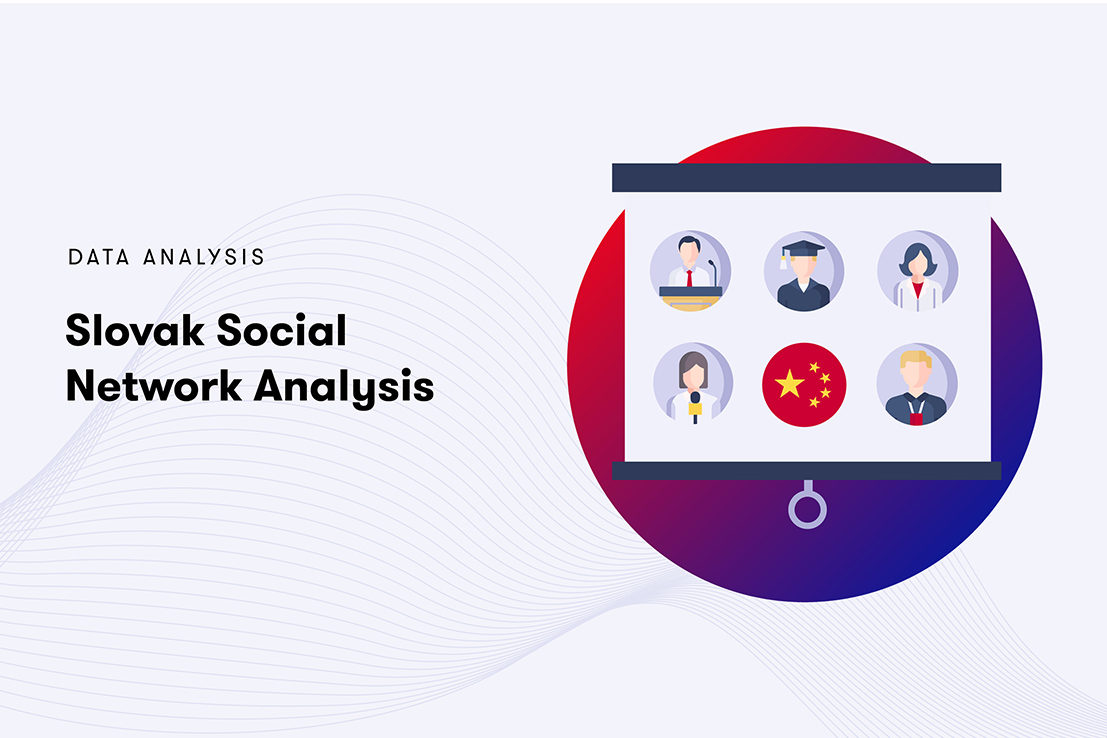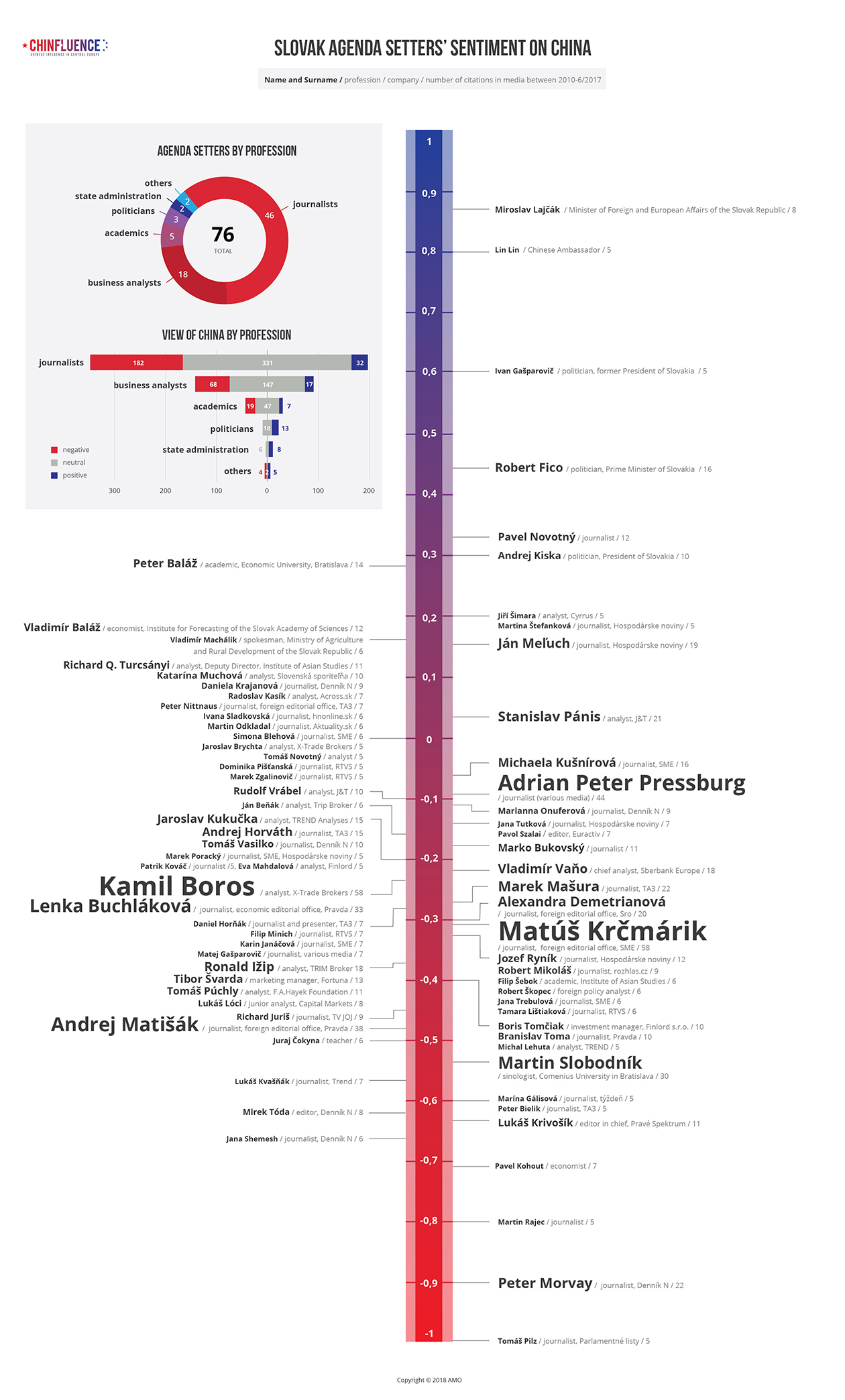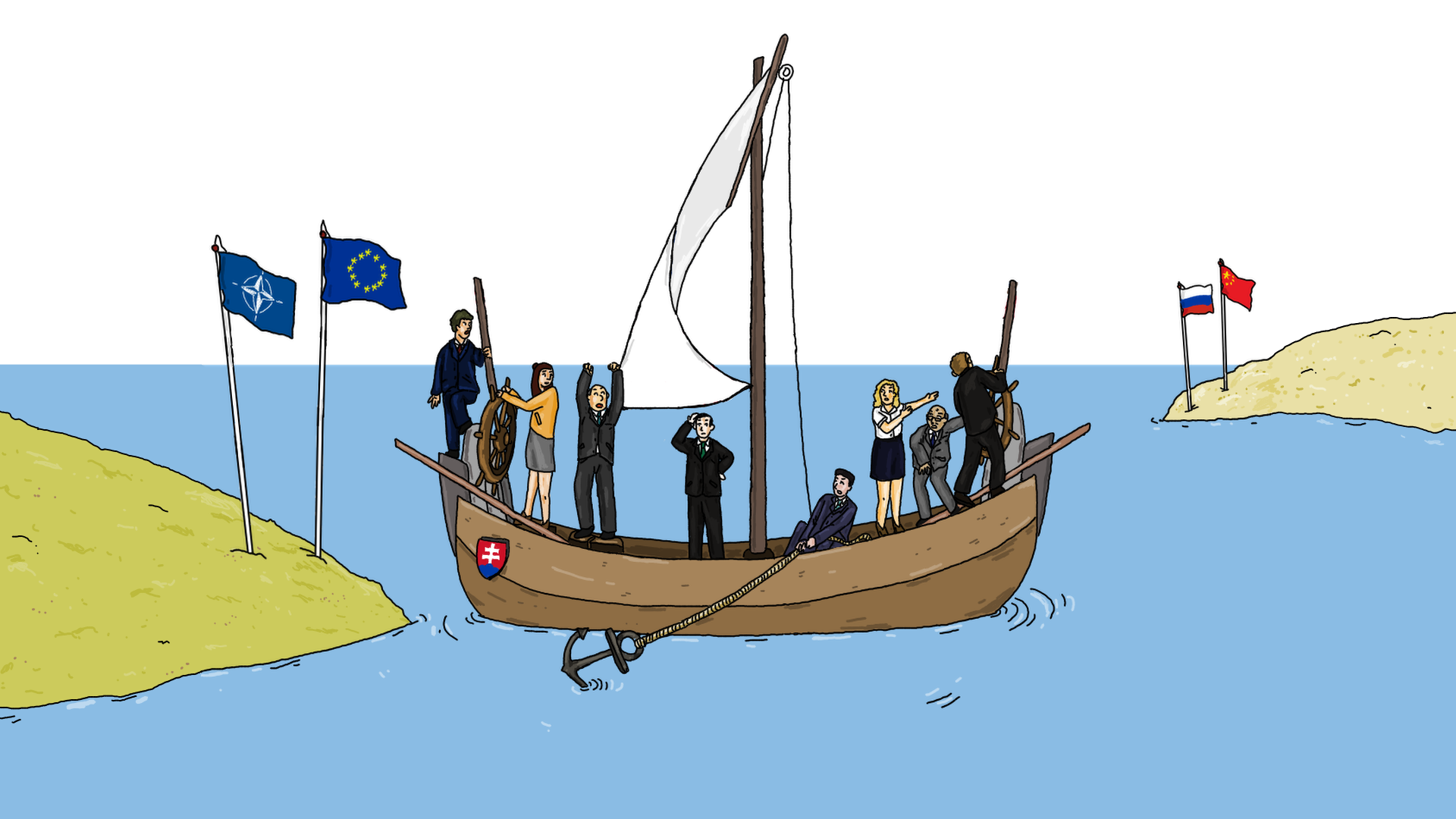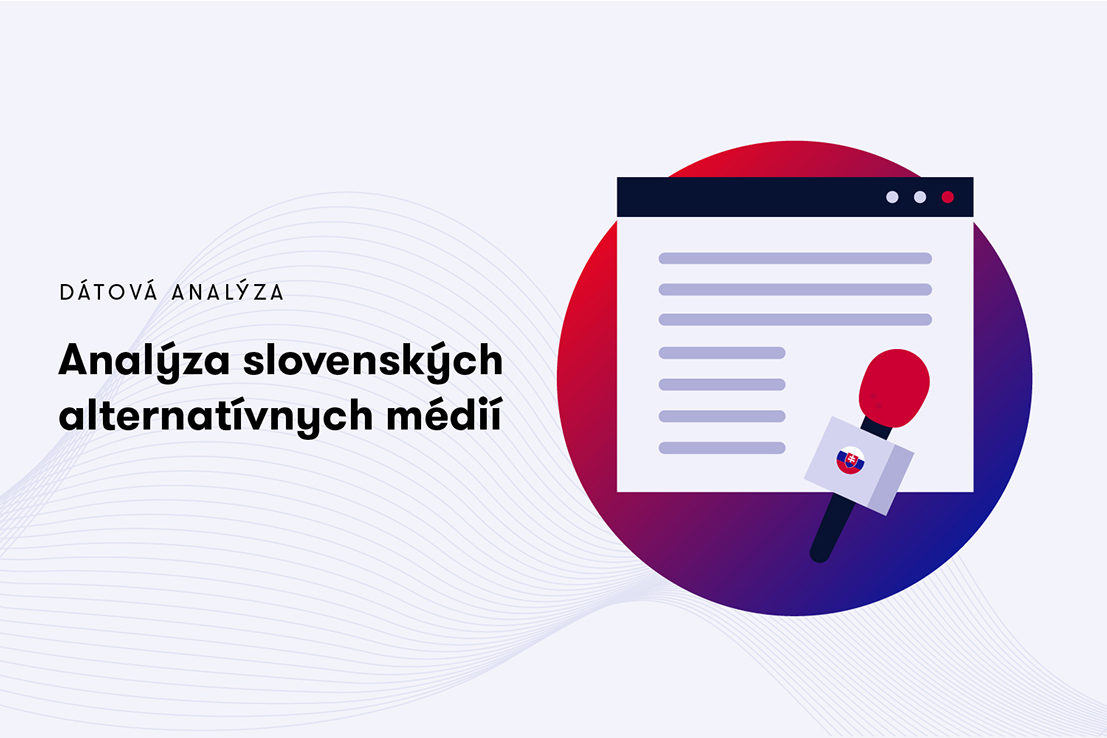Slovak Social Network Analysis

The second objective of the project was to identify and explain the web of opinion of agenda setters involved in the recent pro-China turn. At this stage, researchers looked at agenda setters of the discourse – authors and co-authors of articles, sources, quoted persons, companies and institutions – and identified those who took part in the discourse directly, and those who were mentioned by others but did not contribute to the discourse themselves. Looking back to the dataset, researchers then coded agenda setters’ direct speech acts regarding China as either -1 (negative to China), 0 (neutral to China) or +1 (positive to China). The agenda setter’s sentiment value counted as an average of the sentiment in relation to the number of citations by the agenda setter in the analyzed dataset represents a position of each actor on China and vis-a-vis others on the scale.
The graph includes people repeatedly commenting on China-related topics in Slovak media.
As part of the research the researchers collected a survey of the agenda setters’ views of China and conducted interviews with them. The information collected were then presented in the policy paper Čína na Slovensku: Sme pripravený na budúcnosť? (in Slovak).
When compared with the Czech Republic and Hungary, Slovak politicians rarely talk about China. In Slovakia, the media discourse of China is driven mainly by journalists (in the Czech Republic and Hungary politicians are also active as agenda setters). Another interesting aspect of the Slovak media discourse of China is the group of business analysts commenting on Chinese economic situation. While in the Czech Republic and Hungary they appear very rarely, in Slovakia they are the second most numerous group of agenda setters.


